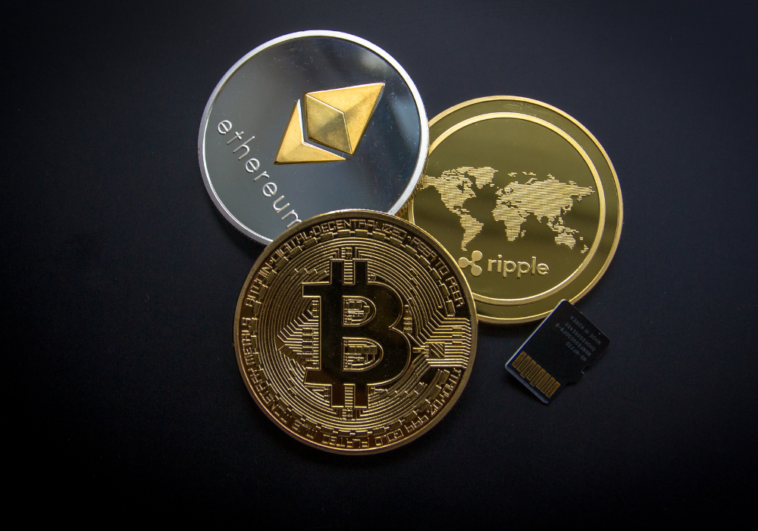Years of trading on cryptocurrency marketplaces are usually where the top trading strategies are developed.
Any novice may learn how to develop the best trading tactics and stay clear of frequent cryptocurrency pitfalls with the help of this practical book.
We’ll describe the following in this article:
- Six Cryptocurrency Investing Tips
- Five basic bitcoin mistakes, and how to avoid them
- How to understand crypto jargon
6 Cryptocurrency Investing Tips
If you want to invest in cryptocurrencies, here are six tips:
1. Have a strategy for crypto trading
There are many sharks out there willing to take your money, making it difficult to distinguish between legitimate bitcoin suggestions and frauds.
In the first nine months of 2021, there were 7,118 reports of cryptocurrency investment fraud. Action Fraud reported that the average loss per victim was £20,500, which was a 30% increase over the entire year 2020.
Take a step back from the hype when you’re presented with a lot of information about a cryptocurrency.
Consider the platform or project critically. How many people utilize it? What issue does it address? Avoid currencies that make lofty promises but fail to deliver on them.
Find out Crypto trading strategies now
2. Manage risk
Some people who provide advice on trading cryptocurrencies might not have your best interests in mind. Therefore, avoid getting hurt by making the same errors as others.
Don’t be tempted to trade with more money than you can afford to lose by setting restrictions on your investment in a particular digital currency.
Trading cryptocurrencies involves a high level of risk, and more traders lose money than make it.
3. Diversify your crypto portfolio
Too much investment in a single cryptocurrency is not advisable. Do not put all of your eggs in one basket, or as they say.
Spread your funds among many digital currencies, much like you would with equities and shares.
This implies that even given how volatile the market prices for various investments are, you don’t run the risk of being overexposed should one of them see a value decline.
There are a lot of options, so do your research. Safe moon and Worldcon are two examples.
4. Be in it for the long term
Daily price fluctuations can be fairly pronounced, and inexperienced traders are frequently fooled into panic selling when prices are low.
Cryptocurrencies won’t disappear any time soon. The best returns may come from investing in the cryptocurrency market for several months or perhaps several years.
5. Automate purchases
To benefit from pound-cost averaging, you may automate your cryptocurrency purchases, just like you would with traditional stocks and shares.
You can set up recurring purchases on most cryptocurrency exchanges, including Coinbase and Gemini.
Investors in cryptocurrencies use this to instruct the platform to buy a set quantity of their favorite cryptocurrency each month, for instance, £100 worth of bitcoin. It implies that individuals receive somewhat less money during periods of high prices and slightly more during periods of low prices.
This relieves the pressure of trying to time the market by either buying or selling a currency at what you believe to be the best possible price. Even industry experts in the market struggle to get it right.
6. Use trading bots
Trading bots can be helpful in specific situations, but they are not advised for new investors searching for advice on cryptocurrency. Frequently, they are only veiled scams.
Everyone would use actual algorithms if they were available that could perfectly schedule their buy and sell trades!
Five basic bitcoin mistakes, and how to avoid them
According to the Financial Conduct Authority’s most recent study, around 2.3 million Britons own cryptocurrencies in some capacity.
It’s really simple to become engrossed in the excitement of news headlines. We’ve included a few of the startlingly frequent crypto mistakes here.
1. Buying just because the price is low
Low costs do not always equate to great deals. Prices can be intentionally low on occasion. Be wary of cryptocurrencies that have declining user rates.
Additionally, developers frequently abandon projects, preventing them from being properly updated and leaving the coin vulnerable.
2. Going ‘all-in’
Some of the riskier trading platforms advise you to maximize your funds by placing as many bets as you can. This is a direct route to poverty.
Better cryptocurrency investment advice would be to keep an emergency cash reserve in an accessible savings account that is never invested in the market, and to only use a portion of your capital—say, 5%.
3. Thinking crypto is easy money
Making money through trading any form of financial assets, including stocks, shares, or commodities like silver and gold, is not simple. The same is true of cryptocurrencies.
Anyone who claims otherwise is definitely attempting to deceive you into making bad crypto decisions.
4. Forgetting your crypto keyphrase
Forgetting your keyword is equivalent to misplacing the keys to a bank vault if you use a hardware wallet to store your cryptocurrency offline.
All of your cryptos will be lost without your keyphrase.
5. Falling for scams
Be very wary of crypto deals that sound too good to be true. We outline four common crypto scams you could be careful of:
- Cloud multiplier scams
Fraudsters will occasionally send their victims an “investment opportunity” via email or text. If investors transmit their bitcoin to a specific digital wallet, they will receive double or triple of what they initially invested.
Remember to always be extremely skeptical of offers of free money.
- Pump and dump
Very small or unknown coins can easily have their value inflated or deflated by criminals, sometimes sending their value skyrocketing.
Criminals occasionally own large amounts of a certain cryptocurrency (through pre-mining much of it before it is available to the general public).
The thieves wait for the price to rise before selling all of their coins and bringing the price down as unaware traders rush in to try and get a piece of the action.
By promoting it on social media, they can raise the price before selling it at a higher price.
- Malicious wallet software
The finest cryptocurrency advice will advise you to stick with well-known wallets like Ledger, Trezor, Exodus, or MetaMask.
Your cryptocurrency funds may be stolen via sketchy wallets that you find on Google Play or the App Store.
- Fake coins
It might be challenging to distinguish between genuine and fake cryptocurrencies due to the abundance of them on the market.
Criminals can take your identity and frequently your hard-earned money when you buy in bogus coins.
Don’t rely on what others say; instead, do your own research on coins before you buy them using as many sources as you can.

How to understand crypto jargon
In the world of cryptography, there is a lot of jargon that is frequently challenging to understand.
Utilize this useful list to take full advantage of the top cryptocurrency advice and avoid frequent cryptocurrency errors that could ruin your trading account.
Altcoin: The term “altcoin,” a combination of the words “alternative” and “coin,” designates any cryptocurrency other than the pioneering bitcoin.
Exchanges for trading cryptocurrencies: Just like traditional stock markets, exchanges for trading cryptocurrencies, such as Coinbase, Binance, Gemini, and Bitstamp, allow investors and traders to purchase and sell. Cryptocurrency exchanges, unlike traditional stock markets, are only available online and are open twenty-four hours a day, seven days a week.
Limits: The majority of exchanges don’t place any restrictions or ceilings on the number of bitcoin trades that a user may execute each day. Some brokers may temporarily stop consumers from making deposits on their platforms on choppy trading days when cryptocurrency prices are swinging wildly up or down.
Market cap: The market cap of a cryptocurrency is its whole value. It is determined by dividing a cryptocurrency’s price by the total number of coins in circulation. It’s a practical metric for comparing the overall size or value of several cryptocurrencies.
Shorting: Cryptocurrency “shorting” refers to a wager that the price will decline rather than increase.
Forks: A cryptocurrency fork is a blockchain split that results in the creation of two distinct blockchains. This occasionally happens as a result of a disagreement among developers about the structure of the blockchain. Bitcoin split into two distinct blockchains in 2017: bitcoin and bitcoin cash.
ICO: An initial coin offering (ICO) is a transaction in which brand-new cryptocurrencies are first offered to investors. The initial public offering (IPO) of stocks and other securities is comparable to this.
Margin trading: Platforms refer to “margin trading” when they mention investors borrowing money to increase their wager on a cryptocurrency. However, if a trade doesn’t go in your favor, margin trading can significantly amplify losses.
Fiat: A fiat currency is one that has a sovereign government as its backer. Take the pound, the dollar, or the rupee as examples.
Cloud mining: People can “mine” or create cryptocurrencies through cloud mining, where they can compete for incentives in the form of freshly created cryptocurrency. Cloud mining pools resources and lowers mining costs by utilizing distant data centers with shared processing capacity, such as those that run Google software.
Be exceedingly cautious because many cloud mining businesses are merely frauds. To mine the main cryptocurrencies, enormous computational power is required. Anyone promising simple cloud mining returns is probably a con artist.
Bull markets and bear markets: These terms, bull markets, and bear markets, come from conventional stock markets. In a bull market, traders are optimistic about the prospects for a particular investment, which leads to continued buying and rising prices; in a bear market, traders are uneasy and prices typically decline.
Sell orders: A sell order is a directive traders give to a platform to instruct them to sell the cryptocurrency they possess when the price reaches a specific level. This is known as a “stop loss” in traditional markets.
You may also like..
What is Bitcoin? What is the cost of Bitcoin?
Coin Master Free Spins And Coins Link For Daily Basis
Not Sure How to Invest in Bitcoin? Best Beginner’s Guide to Make Money on Cryptocurrency Easily








GIPHY App Key not set. Please check settings